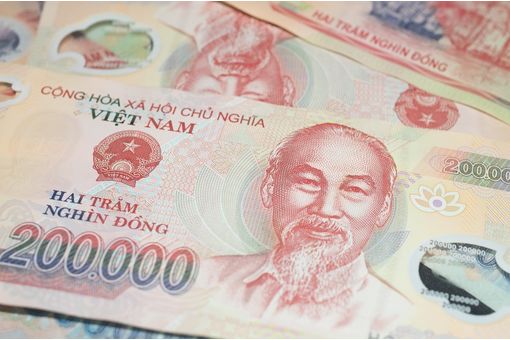Interviews
Kenya on the path to introduce GM cotton
27 Jul '11
3 min read
Kenya will reap its first lot of commercial genetically modified (GM) cotton, popularly known as Bt cotton in 2014, when seeds will be made available to farmers.
Bt cotton seeds are immune against certain crop diseases and are even drought-resistant. Hence, they yield almost double the quantity of crop than what the farmers usually harvest with ordinary seeds.
Experimental checks of GM seeds are being carried out for over years now by Kenya Agricultural Research Institute (KARI) at its demonstration farm in Thika. Also, farmers in Embu have been imparted training in cultivation of these seeds.
The path for the launch of GM crops in Kenya has been cleared with the commercialisation of GM crops getting legal sanction, since the technology is cited as being advantageous to the farmers.
The Cotton Development Authority has validated that trials are being carried out with GM cotton, as it not only reduces spraying from nine to three times but even boosts the yields to almost double.
At present, Kenya each year needs to produce 200,000 bales to gain self-reliance in cotton, and this can easily be attained with plantation of GM cotton.
The preference for GM cotton is a part of Government's endeavour of attaching greater importance to small scale farming, to alleviate rural poverty and to ensure cheap availability of raw materials for domestic textile producers.
The move is even intended at speeding up recovery of the domestic cotton industry, which crashed during 1990s due to a number of issues including large-scale import of used garments.
Kenya highest yield was of 70,000 cotton bales in 1986, which has since fallen to just 45,000 bales in 2010.
Experts at the Cotton Development Authority opine that Kenya has a capacity to produce 260,000 bales of cotton per year, a figure which would make Kenya self-sufficient in cotton production.
Cotton is a crop that necessitates large-scale use of pesticides. A survey undertaken by KARI revealed that around 35 percent of the farmers in Kenya stated high cost of pesticides to be the biggest hurdle that restrains them from undertaking cotton cultivation.
However, according to critics, GM cotton too involves use of pesticides to some extent, besides being injurious for soil in the long run.
According to Britain's Institute of Science in Society, though GM cotton generates a contaminant which kills cotton pests like boll weevil, it does not provide resistance against sucking pests like aphids, which are likely to harm the crop and may require additional spraying.
Bt cotton seeds are immune against certain crop diseases and are even drought-resistant. Hence, they yield almost double the quantity of crop than what the farmers usually harvest with ordinary seeds.
Experimental checks of GM seeds are being carried out for over years now by Kenya Agricultural Research Institute (KARI) at its demonstration farm in Thika. Also, farmers in Embu have been imparted training in cultivation of these seeds.
The path for the launch of GM crops in Kenya has been cleared with the commercialisation of GM crops getting legal sanction, since the technology is cited as being advantageous to the farmers.
The Cotton Development Authority has validated that trials are being carried out with GM cotton, as it not only reduces spraying from nine to three times but even boosts the yields to almost double.
At present, Kenya each year needs to produce 200,000 bales to gain self-reliance in cotton, and this can easily be attained with plantation of GM cotton.
The preference for GM cotton is a part of Government's endeavour of attaching greater importance to small scale farming, to alleviate rural poverty and to ensure cheap availability of raw materials for domestic textile producers.
The move is even intended at speeding up recovery of the domestic cotton industry, which crashed during 1990s due to a number of issues including large-scale import of used garments.
Kenya highest yield was of 70,000 cotton bales in 1986, which has since fallen to just 45,000 bales in 2010.
Experts at the Cotton Development Authority opine that Kenya has a capacity to produce 260,000 bales of cotton per year, a figure which would make Kenya self-sufficient in cotton production.
Cotton is a crop that necessitates large-scale use of pesticides. A survey undertaken by KARI revealed that around 35 percent of the farmers in Kenya stated high cost of pesticides to be the biggest hurdle that restrains them from undertaking cotton cultivation.
However, according to critics, GM cotton too involves use of pesticides to some extent, besides being injurious for soil in the long run.
According to Britain's Institute of Science in Society, though GM cotton generates a contaminant which kills cotton pests like boll weevil, it does not provide resistance against sucking pests like aphids, which are likely to harm the crop and may require additional spraying.
Fibre2fashion News Desk - India
Popular News
Leave your Comments
Editor’s Pick
Kimberly Morgan and Rik Veltman
K3 Business Technology Group PLC
Susanne Guldager
Label - La Femme Rousse
































-Ltd..jpg?tr=w-120,h-60,c-at_max,cm-pad_resize,bg-ffffff)





.jpg?tr=w-120,h-60,c-at_max,cm-pad_resize,bg-ffffff)
.jpg?tr=w-120,h-60,c-at_max,cm-pad_resize,bg-ffffff)






